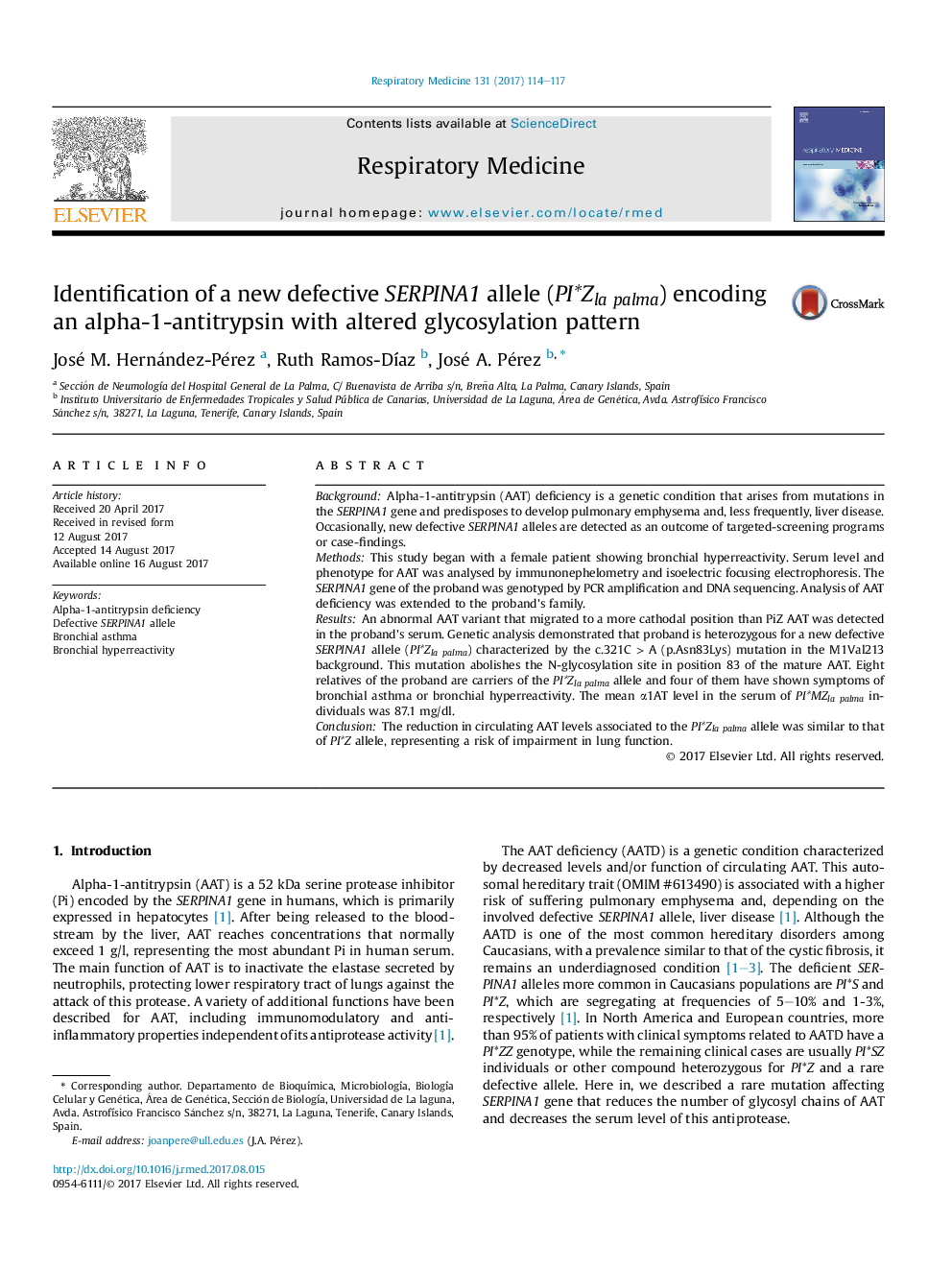| Article ID | Journal | Published Year | Pages | File Type |
|---|---|---|---|---|
| 5724932 | Respiratory Medicine | 2017 | 4 Pages |
â¢A new mutant allele of SERPINA1 gene, named PI*Zla palma, has been identified.â¢PiZlapalma is a glycosylation-defective alpha-1-antitrypsin (AAT).â¢Reduction of serum AAT levels in PI*MZla palma is similar to that of PI*MZ genotype.â¢PI*Zla palma allele represents a risk for lung dysfunction.
BackgroundAlpha-1-antitrypsin (AAT) deficiency is a genetic condition that arises from mutations in the SERPINA1 gene and predisposes to develop pulmonary emphysema and, less frequently, liver disease. Occasionally, new defective SERPINA1 alleles are detected as an outcome of targeted-screening programs or case-findings.MethodsThis study began with a female patient showing bronchial hyperreactivity. Serum level and phenotype for AAT was analysed by immunonephelometry and isoelectric focusing electrophoresis. The SERPINA1 gene of the proband was genotyped by PCR amplification and DNA sequencing. Analysis of AAT deficiency was extended to the proband's family.ResultsAn abnormal AAT variant that migrated to a more cathodal position than PiZ AAT was detected in the proband's serum. Genetic analysis demonstrated that proband is heterozygous for a new defective SERPINA1 allele (PI*Zla palma) characterized by the c.321C > A (p.Asn83Lys) mutation in the M1Val213 background. This mutation abolishes the N-glycosylation site in position 83 of the mature AAT. Eight relatives of the proband are carriers of the PI*Zla palma allele and four of them have shown symptoms of bronchial asthma or bronchial hyperreactivity. The mean α1AT level in the serum of PI*MZla palma individuals was 87.1 mg/dl.ConclusionThe reduction in circulating AAT levels associated to the PI*Zla palma allele was similar to that of PI*Z allele, representing a risk of impairment in lung function.
